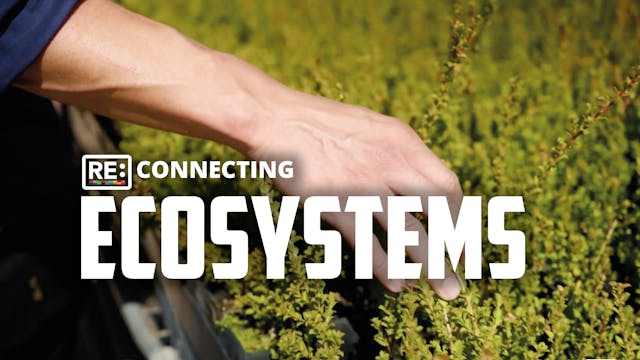Reconsidering Agriculture
RE:TV
•
8m 2s
With an estimated 25% of greenhouse gas emissions coming from our food system, rethinking our approach to agriculture is essential if we are to create a sustainable future. By working in harmony with nature, regenerative agriculture can provide more nutritious food at the same time as reducing emissions, restoring damaged ecosystems and protecting biodiversity.
Traditionally, farmers have been seen as guardians of the land, but the heavily mechanised approach to agriculture has been one of the key drivers of climate change and biodiversity loss. It has damaged ecosystems around the world, degrading the soils we depend on for our food, and destroying wildlife with pesticides and inorganic fertilisers.
Today there is an increasing understanding of the pivotal role agriculture can play - not just by reducing its environmental impact - but also by working with nature to restore soil fertility and adapting to the changing conditions brought about by the climate crisis.
Up Next in RE:TV
-
Reconnecting Ecosystems
Despite making up only around 5% of the world’s population, indigenous people protect an estimated 80% of the planet’s remaining biodiversity.
The Ngarrindjeri have lived near Lake Albert in Coorong National Park in South Australia for generations, but the area’s unique wetlands ecosystem is unde... -
Refuelling Aviation
Using bacteria to create Sustainable Aviation Fuel from captured carbon
With 2.5% of global CO2 emissions generated by the aviation sector and 100 million gallons of jet fuel used each year by commercial airlines, decarbonising aviation fuel is essential if we are to achieve a Net Zero future.
Ba... -
New Series from RE:TV
In this second offering RE:TV highlights some of the inspiring innovations and ideas that are emerging in response to the climate and biodiversity crisis.
RE:TV was announced at the World Economic Forum at Davos in January 2020 by His Majesty King Charles III (then HRH The Prince of Wales) along...



